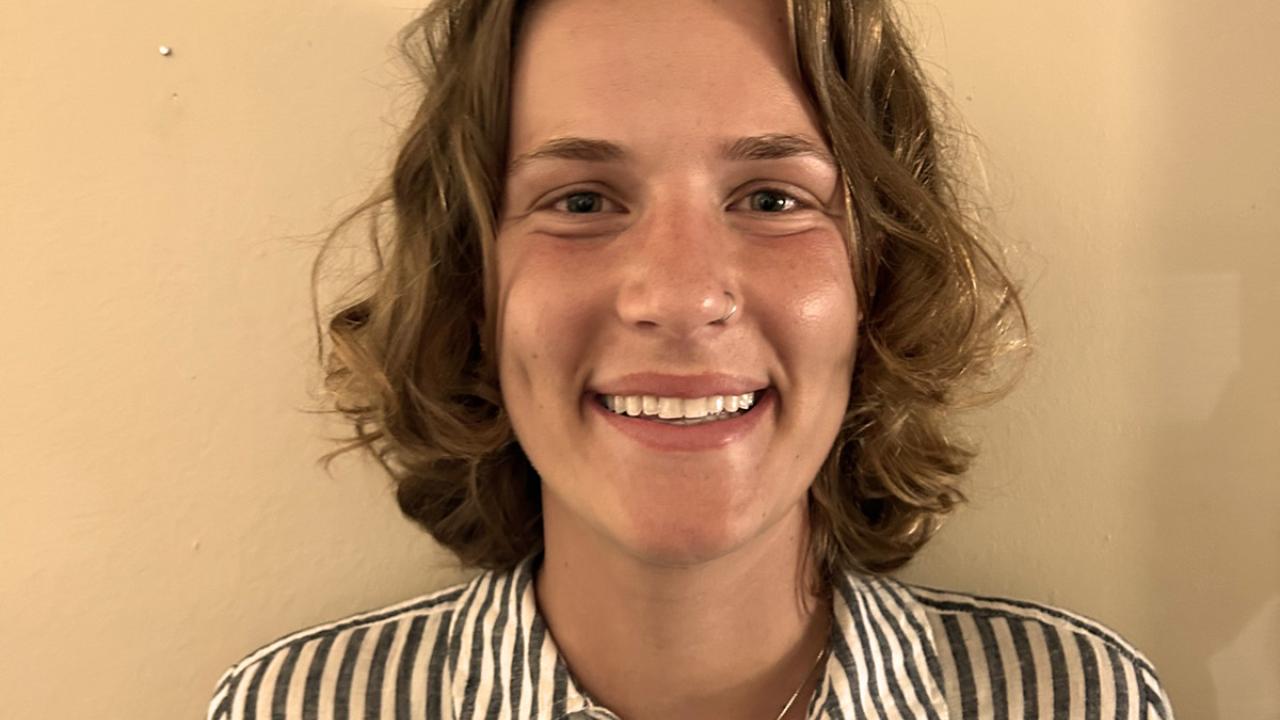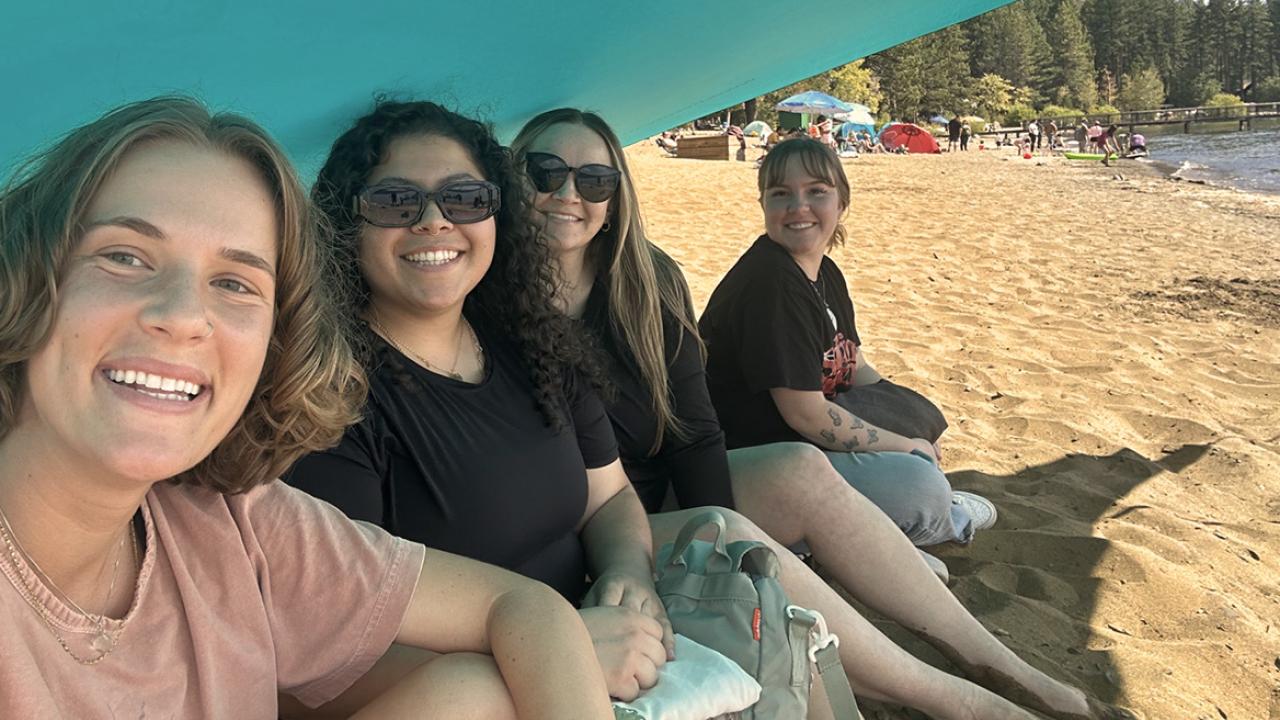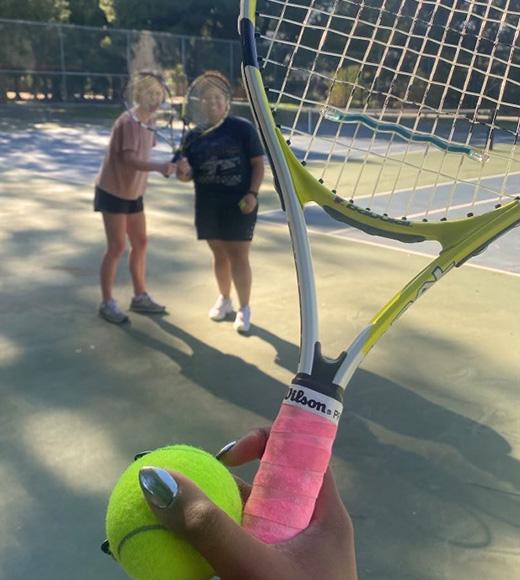
From Rural Roots to Healthcare Reform: A Journey Rooted in Advocacy
Undergraduate: California Polytechnic State University
Major: Nutrition Science
Track: Research Track
Future Health Profession: M.D.
Health Profession School: UC Davis School of Medicine
Equitable access to health care—especially in rural areas—remains a major challenge in the United States. But it’s one that Madison Dodds is determined to change.
“I want to work in a medically underserved area, working with the population at hand, bringing more healthcare resources to them,” she said. “I want to prevent people from receiving inadequate care simply because of where they live.”
Growing up in Redding, California, Madison said there was a serious physician shortage in her area. “If your primary care doctor retires, it can take months to find someone new,” she said.
As an LGBTQIA+ individual living in an area with limited access to health services, Madison added that she felt misunderstood discussing her identity with doctors who had little experience working with the LGBTQIA+ community.
“That experience inspired me to address a need in my community and pursue medical school.”
After facing some setbacks during undergrad, Madison chose to strengthen her academic foundation by pursuing the UC Davis Health Professions Post-Baccalaureate Program. “I wanted to prove to myself that I was capable of success,” she said.
“I also loved the idea of having advisors to help guide me through the steps of the application and just for general support.”

What were your goals when starting the program, and how did your advisors help you work toward them?
I wanted to increase my GPA and obtain the resources and skills to succeed at the MCAT. My advisors helped by providing guidance on which classes to take that would challenge me and ensure I could handle the rigor of advanced science classes. They also helped by advising me on MCAT test-taking strategies and which resources may be best for my style of learning.
What were some of the biggest challenges you faced on your journey, and how did you overcome them?
Throughout my journey, I struggled with impostor syndrome. I never felt I belonged or was smart enough to be pursuing medical school.
Similarly, growing up in a conservative town, discussing my LGBTQIA+ identity was not an option. I repressed it, hoping denial would make it go away, and I would be “normal.” Hearing slurs at school deepened these feelings, and I kept this part of myself hidden until college.
This also affected my experiences with doctors because I was afraid that revealing my identity would lead to changes in their demeanor. Heteronormative questions confirmed the lack of representation I sought. This motivated me to pursue medicine to bring more LGBTQIA+ education into rural and medically underserved areas.
How did the program support you during your med school application process?

I felt heavily supported by Bryelle throughout the whole application process. From start to finish, she was available to read my primary, secondaries and help with interview prep. Even when she didn’t have an open time slot, she made time—sometimes just 10 minutes—for me to ask questions. Not only this, but her advice on why I should or should not apply to certain schools greatly improved my chances of success. I don’t think I would have been accepted on my first try without the program’s support.
Where are you planning to attend and what was that moment like for you?
I received several acceptances, and I am planning to attend UC Davis. Getting the call that I’d been accepted to UC Davis was surreal. I remember feeling shocked, relieved and excited all at once. I felt very grateful for the program and for Bryelle in that moment.
I understand you are interested in LGBTQIA+ healthcare reform and may be joining the UC Davis RURAL PRIME program to help in those areas. Can you share more about this?
While working with Bryelle on my “why medicine,” it became abundantly clear to me my desire for LGBTQIA+ healthcare reform. Feeling fearful and misunderstood when discussing my own identity with physicians who did not have much experience working with LGBTQIA+ individuals led me to hide parts of myself, resulting in incomplete care.
As a scribe at a local clinic, I also saw others face similar challenges. Patients would be unsure if their provider had an adequate understanding or would be accepting if they shared their identity in the LGBTQIA+ community. Because of this, I wanted to not only work towards more education and training in LGBTQIA+ healthcare areas but also bring this information to rural communities that may be lacking in resources for minority groups.
What aspects of the program did you find most valuable?
The advising was the most valuable aspect of the program. I was considering another program before choosing UC Davis, but what made my decision was talking to students in each and realizing how strong the advising was at Davis. Once I started the program myself, I realized how important advising would be. I was able to get help with classes, test taking, program choices and application prep.
Can you share a specific example of how you benefited from the advising and test prep resources?
Without the advising and test prep support, I don’t think I’d be starting medical school at UC Davis this summer.
Being able to meet weekly with Bryelle, Doug or Jennie—not only during the program but also after I had completed it—was necessary to my success. As someone who has no family members in medicine, I had no idea how to tackle the MCAT or the application process. I felt very prepared with the guidance of the advisors.
During my test prep, I struggled with overthinking every answer I chose and why I chose it. I was wasting time unable to finish questions. Doug advised me on different strategies for choosing answers and moving on, as most of the time my first choice was right. This gave me enough time to check some answers at the end of each section and my scores improved.
Which track did you choose, and how did that focus enhance your preparation for your intended profession?
I was already EMT certified, so I chose the research track. I didn’t have much research from undergrad, so this track allowed me to work alongside a Ph.D. student for almost a year. This was more than I could have asked for because the track was only set up for the summer.
This opportunity taught me more about wet labs and what types of research I might be interested in pursuing while in medical school. It was very useful in my journey and helped me understand research and journal articles more, which was necessary for taking the MCAT.
What was your experience like with your cohort, and how did you grow through those peer relationships?
My cohort was very close. While there were smaller groups within the whole cohort, we all got along very well and could rely on each other if needed. I grew very close to a group of eight girls. As the program progressed, we got closer working together in class and doing things outside of class. A year and a half later, since the program ended, we still meet up to hang out every so often, and I am fortunate enough to be going to Davis with one of my roommates from the program.
Would you recommend UC Davis’ Health Professions Post-Bac Program to others?
Take Your Next Step
Get the support you need to succeed. Contact an enrollment coach to learn more about the Health Professions Post-Bac and how you can benefit from the personalized support services the program offers.
Yes. Throughout the program, I felt supported and taken care of. Despite any challenges I faced in the classroom or during the application cycle, I knew I could rely on the advising staff to point me in the right direction. This was invaluable to me as a student and applicant.
The program also fostered a great environment for my cohort to become close through quarterly events—it was a fun and exciting way to see everyone and bond more. Overall, I would choose the UC Davis Health Professions Post-Bac again. I cannot recommend this program enough to people.
What advice would you give to someone considering a post-bac program?
I initially had reservations about pursuing a post-bac because I didn’t want to feel behind. But because of the program, I met so many people who were on different paths that all led to the same place. I would also recommend a post-bac if you are feeling impostor syndrome. This program reinforced my self-belief that I deserve to be here and can succeed in medical school.
